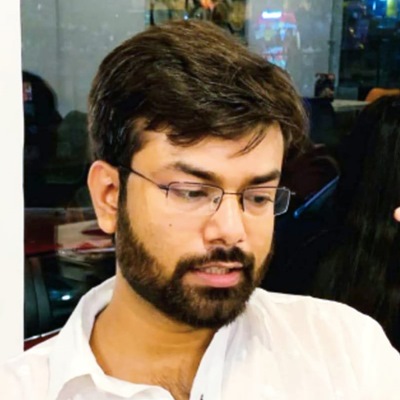Here are some of the essential quotes, statements, and remarks from the week to help you learn and understand the current issues. These can be used wisely for your UPSC CSE preparation.
1. Limit seats a person can contest to 1, ban opinion and exit polls ~EC to government
Syllabus: GS II Salient features of the Representation of People’s Act
— The new Chief Election Commissioner, Rajiv Kumar, asked the Ministry of Law & Justice to limit the seats from which a candidate can contest to just one.
— The Election Commission (EC) has sought an amendment to Section 33(7) of the RPA (Representation of the People Act), 1951. According to this Act, one candidate can contest from a maximum of two constituencies. More constituencies were allowed until 1996 when the RPA was amended to set the cap at two constituencies. Important to highlight that the Section 33(7) of the RPA is contradictory to another section of the same Act — Section 70. Section 70 bars candidates from representing two constituencies in the Lok Sabha/State Assembly.
— Other recommendations were made to ban exit polls and opinion polls, to issue notifications for the linking of Aadhaar with voter IDs, allow four qualifying dates for eligible people to register as voters, sought powers to deregister political parties, a long-standing demand of the poll panel and sought the modification of Form 24A to mandate the disclosure of all donations above Rs 2,000 instead of Rs 20,000.
— Section 29A of the Representation of the People Act, 1951 empowers the commission to register associations and bodies as political parties. However, there is no constitutional or statutory provision that gives power to the EC to deregister parties.
2. Hate speeches starting point of targeted attacks~ Delhi High Court
Syllabus: GS II Constitution, GS I Society
— Calling for action against hate speeches by elected representatives, political and religious leaders, the Delhi High Court Monday said that such utterances are the “beginning point of attacks” against the targeted community, and persons who are mass leaders and occupy high offices must conduct themselves with utmost integrity and responsibility.
— India does not have a formal legal framework for dealing with hate speech. Section 295A defines and prescribes a punishment for deliberate and malicious acts, intended to outrage religious feelings of any class by insulting its religion or religious beliefs. Section 295A was brought in 1927. The case which becomes important as it is linked to the origin of Section 295A is Rangila Rasool case.
— Other important sections or provisions are:
— Section 153A IPC penalises ‘promotion of enmity between different groups on grounds of religion, race, place of birth, residence, language, etc., and doing acts prejudicial to maintenance of harmony’. Section 153B IPC penalises ‘imputations, assertions prejudicial to national-integration’. Section 505 of the IPC that punishes statements conducing to public mischief. Part VII of the Representation of People Act, 1951 classifies hate speech as an offence committed during elections into two categories: corrupt practices and electoral offences. The relevant provisions regarding hate speech in the RPA are Sections 8, 8A, 123(3), 123(3A) and 125. Model Code of Conduct (MCC) Item 1 (General Conduct)- prohibits parties and candidates from making any appeals to caste or communal feelings for securing votes.
— Section 66A of the Information Technology Act: In cases of hate speeches online, the section punishes sending offensive messages through communication services is added. In a landmark verdict in 2015, the Supreme Court struck down Section 66A as unconstitutional on the ground that the provision was “vague” and a “violation of free speech”. However, the provision continues to be invoked.
3. Agnipath scheme has been designed to enable a youthful profile of the Armed Forces. It will provide an opportunity to the youth who may be keen to don the uniform by attracting young talent from the society who are more in tune with contemporary technological trends and plough back skilled, disciplined and motivated manpower into the society~The Indian government on Agnipath Scheme.
Syllabus: GS II – Government policies and interventions aimed at development in various sectors and issues arising out of their design and implementation.
— Government announced recruitment scheme for armed forces — Agnipath — on June 14. Under the new scheme, soldiers or “Agniveer” will be recruited for a period of four years at the end of which they will get over Rs 10 lakh tax-free and certificates or diplomas for their service. Agniveers will be selected through an online centralised system. Educational qualification for Agniveers will be the same as the criteria for regular positions in the force.
— The government aims to recruit about 45,000-50,000 personnel below officer rank in the three services every year through a biannual exercise with a six-month gap. At the end of their tenure, 25 per cent of these recruits will be inducted back into the services and go on to serve for a full 15 years in non-officer ranks. The remaining will exit the services with a package between Rs 11 lakh – Rs 12 lakh, but they will not be eligible for pension benefits.
Candidates between the ages of 17-and-a-half years and 21 years (23 for the current year)will be eligible to apply, and recruitment will be conducted under existing qualification criteria. The recruits will undergo training for six months and serve for the remaining period. Currently, a soldier serves for nearly 17-20 years.
— Under the new scheme, the starting salary will be Rs 30,000, which will go up to Rs 40,000 by the end of the fourth year. However, 30 per cent of the salary will be held back as savings, and an equal amount contributed by the Government per month, under the Seva Nidhi scheme. On its success, the scheme will cut the annual revenue and pension bill which accounts for half of the annual defence budget of ₹ 5.2-lakh crore. Provisions have been made for loss of life or disability due to an injury on duty.
— Among major concerns are job security and pension. Also, not everyone is certain that the training Agniveers will get will be enough to trust them.
4. No demolition without due process… the rule of law has to prevail- SC
Syllabus: GS II Constitution
— Underlining that the “rule of law has to prevail” and “no demolition can take place without following the due process of law”, the Supreme Court sought the response of the Uttar Pradesh government on a plea by Jamiat-Ulama-i-Hind which alleged illegal demolition of private properties in the state following violent protests over remarks against the Prophet.
— The term ‘Rule of Law’- It is nowhere defined in the Indian Constitution. To simply understand the meaning of rule of law, it means that no man is above law and also that every person is subject to the jurisdiction of ordinary courts of law irrespective of their position and rank. It is required that the people should be governed by the accepted rules rather than the decisions that are arbitrarily taken by the rulers. Rule of law has been declared by the Supreme Court as one of the basic features of the Constitution so it cannot be amended even by the constitutional amendment. Rule of law is an integral part of good governance.
— The term ‘ due process’: Due process requires that all legal matters should be resolved according to established rules and principles and that individuals be treated fairly. The origin of due process is often attributed to the Magna Carta, a 13th-century document that outlined the relationship between the English monarchy, the Church, and feudal barons.
📣 Join our Telegram channel (The Indian Express) for the latest news and updates
For all the latest UPSC Current Affairs News, download Indian Express App.



 Manas Srivastava<span class="il">Manas</span> writes and works on UPSC-related projec… read more
Manas Srivastava<span class="il">Manas</span> writes and works on UPSC-related projec… read more






